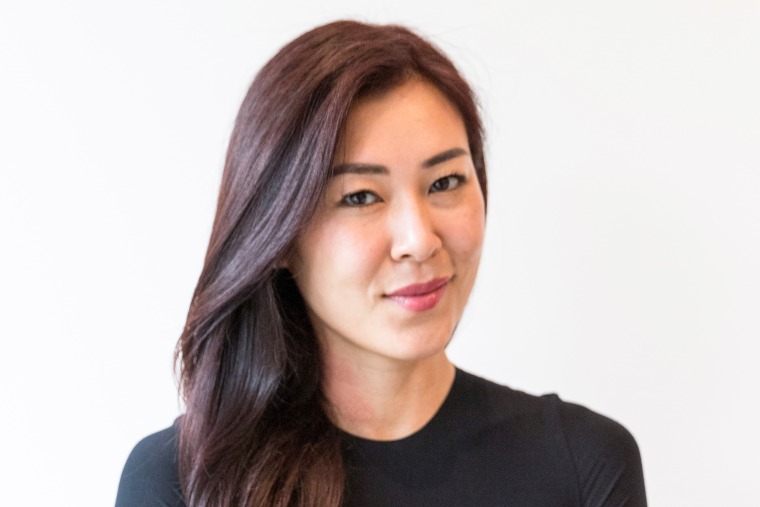Sometimes difficult breakups lead to fresh makeovers, a new wardrobe or bucket list “Eat, Pray, Love” trips. In the case of ShareWell CEO and founder Cece Cheng, she decided to start a business because of it.
At the height of the Covid-19 pandemic in 2020, Cheng had just ended a bad relationship that had taken a toll on her mental health. She worked with her therapist via Zoom – amid the confines of social distancing – and confided in two close friends to help her process the breakup.
Cheng recently told Know Your Value that it wasn’t until she heard a similar relationship experience from a friend that she really understood the gravity of her own situation.
“I remember thinking, ‘Wow, that is really bad. I can't believe that you went through that’,” she recalled about her friend's ordeal. “And then there was a moment where I realized that my story was no less worse than hers, but sometimes it takes seeing yourself in someone else to really recognize that part of yourself.” After that exchange, Cheng knew that she had been in an emotionally abusive relationship.
The former venture capitalist explained that while therapy provided a logical framework to understand what she was going through, peer support actually helped her identify and process her emotions.
Still, she found options for virtual peer support to be extremely limited. “The best I could find were Facebook groups or Reddit forums, and obviously those are not live conversations,” she said. “I just didn't feel comfortable sharing something so personal on either of those platforms.”
The power of peer support groups in mental health recovery has long been documented. A 2019 study from the nonprofit Mental Health America, showed that when individuals participated in peer-support groups their hospital readmission rates dropped by as much as 90 percent in some areas.
Moreover, 89 percent of those surveyed reported improvement in their "whole health" since engaging in peer support.
Since the pandemic shifted these traditionally in-person groups online, Cheng resolved to create a virtual safe space of her own. She began by planning to host a Zoom meeting to bring people together who had also experienced emotional abuse in their relationships. Within three days of networking for her first meeting, 80 people signed up, many of whom Cheng had never met before. It was her "aha" moment.
“These people have no idea who I am, they don't even really know my story,” she recalled. “All they know is that someone out there has saved time and space to talk about something that's important to them, so clearly I'm not the only one.” That initial meeting became the catalyst to launch her virtual peer support platform, ShareWell.
She incorporated the company in 2021, just a few weeks after that Zoom call. At the same time, Cheng decided to forgo a job offer in venture capital and by May of that year she launched the Beta version of ShareWell and became a full-time entrepreneur.
The concept of her platform simple: to create a safe place to share similar experiences. Members choose which virtual peer support groups to join based on topics like mental health challenges or major life transitions.
The sessions require anywhere between three to 16 people to attend, where other ShareWell members volunteer as trained topic hosts. The platform features are designed for sharing experiences and promoting group safety. A meeting will end if the attendee number dips below three people (a host and two paticipants), and ShareWell offers site-wide blocking, reporting and flagging safeguards.
According to Cheng, ShareWell’s membership base has grown globally, reaching into the tens of thousands. Back in 2021 – when the company had just started – she recalled a session she led with members joining as far away as Singapore and Australia.
“I remember them telling me that they were waking up super early in the morning to attend these sessions and they found us through deep Google searches.” That early validation confirmed what she had suspected all along: “Everywhere in the world people are feeling this lack of support.”
Indeed, the money has followed the demand. Last year, ShareWell raised $1.3 million in pre-seed funding. Investors include Adrian Aoun (co-founder Forward), Kyle Vogt (co-founder Cruise and Twitch), Charlie Cheever (co-founder Quora), Russell Simmons (co-founder Yelp), and others.
While Cheng’s mental health recovery initiated the idea to help bring people together, seeing members of the platform say they feel validated and less alone has kept her going.
“When something really shakes up your world, and this relationship really shook up my world, you know it,” she said. “I felt like I opened my eyes to a broader range of humanity and of human experiences … it was also such a painful experience, and I felt so alone … I realized that there are a lot of people out there who feel this way, who may even feel more alone than I do.”
In honor of Mental Health Awareness month, ShareWell is offering new members free access to all platform resources for the month of May.


